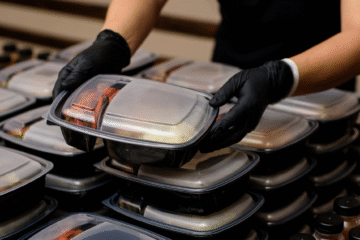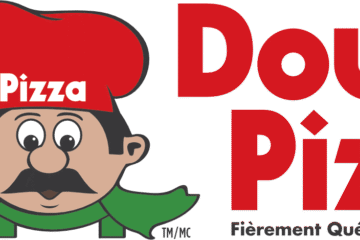If you’re a bulk food vendor selling on B2B platforms, one question probably keeps you up at night: How do I ensure my products meet all compliance and quality standards to win buyer trust and avoid costly pitfalls? The direct answer is to develop a clear, proactive approach to compliance management and quality assurance that integrates seamlessly into your operations. Doing so not only safeguards your reputation but also sets you apart in a crowded marketplace where trust is everything.
Why Compliance and Quality Assurance Matter So Much for Bulk Food Vendors
Imagine buying a large shipment of food products only to find out they don’t meet safety standards or spoil quickly. Would you order again from the same supplier? Probably not. That’s why compliance and quality assurance are the backbone of wholesale food sales.
Bulk food vendors face unique challenges—handling perishable goods, navigating complex regulations, and meeting buyer expectations for consistency. Failure to comply with laws or deliver quality goods can mean legal trouble, lost business, and damaged brand reputation.
Understanding the Compliance Landscape for Bulk Food Vendors
Navigating food safety regulations isn’t just about ticking boxes; it’s about understanding what each standard means for your products and processes. From local health codes to international certifications like HACCP, ISO 22000, or FDA regulations, knowing the requirements relevant to your market is essential.
Start by mapping out all regulatory bodies governing your products’ origin and destination. This clarity allows you to design your operations to meet or exceed those standards, making compliance a built-in feature rather than an afterthought.
The Role of Quality Assurance in Building Buyer Confidence
Quality assurance goes hand in hand with compliance. While compliance ensures you meet legal standards, quality assurance focuses on consistent product excellence—think of it as your brand’s promise to buyers.
Implementing robust QA processes—from raw material inspection to final packaging checks—helps detect issues early and prevents defective batches from reaching buyers. When buyers know you have rigorous QA in place, it reduces their perceived risk and increases loyalty.
How to Build a Compliance-Driven Culture in Your Business
Compliance isn’t just the job of one department; it’s a mindset. Train your team regularly on food safety protocols and the importance of quality. Encourage open communication about potential risks and foster accountability at every step.
Think of your business as a well-rehearsed orchestra where every player understands their role in keeping the music—your product quality—perfect.
Leveraging Technology to Streamline Compliance and QA
Technology is a game-changer here. Digital tools like compliance management software and quality control platforms automate audits, track documentation, and monitor critical control points in real-time.
This reduces human error and provides transparent records you can share with buyers or regulators. Integrating these systems with your B2B platform makes compliance a visible strength of your vendor profile.
Documenting and Communicating Your Compliance Efforts
Buyers often ask for proof before placing bulk orders. Having easily accessible, well-organized documentation like certificates, audit reports, and testing results speeds up trust-building.
Create a digital portfolio of your compliance credentials and share them proactively on your B2B profile or when responding to inquiries. This transparency not only reassures buyers but positions you as a professional and reliable partner.
Best Practices for Quality Control in Bulk Food Supply
Quality control starts at the source. Carefully select suppliers who meet your standards and require them to provide compliance proof. Regularly test samples and maintain detailed records.
In your facility, implement standardized procedures for storage, handling, and packaging to minimize contamination risks. Frequent internal audits help catch issues before they escalate.
The Importance of Traceability in Bulk Food Distribution
Traceability means tracking every step your product takes—from farm to buyer. It’s like leaving a digital breadcrumb trail that can pinpoint the origin of any batch.
In case of a recall or quality concern, traceability enables quick action, limiting damage and reassuring buyers. Many B2B platforms now emphasize traceability as a must-have feature for vendors.
Handling Compliance Challenges in International Markets
Selling across borders adds complexity. Different countries have varying regulations, labeling requirements, and safety standards.
Work closely with experts or consultants specializing in international food compliance. Tailor your packaging and documentation to meet destination country rules, avoiding shipment delays or refusals.
Why Proactive Risk Management Protects Your Business
Don’t wait for problems to arise. Conduct risk assessments regularly, identifying potential points of failure in your supply chain and production processes.
Develop contingency plans and corrective actions to address issues swiftly. This proactive stance minimizes disruptions and builds buyer confidence.
Conclusion
Navigating compliance and quality assurance as a bulk food vendor on B2B platforms might seem daunting, but it’s your ticket to standing out and succeeding in a competitive market. By understanding regulations, embedding quality at every step, leveraging technology, and communicating transparently, you build a trustworthy brand buyers want to partner with.
The effort you put into compliance today pays dividends in reputation, sales growth, and long-term business resilience. Start refining your compliance and quality assurance strategy now—because in the world of bulk food supply, trust is the real currency.
Ensure your bulk food business stays compliant and trusted—partner with Thokmandee today and unlock seamless quality assurance tools designed for your success!
FAQs
- What are the key compliance certifications bulk food vendors should have?
Common certifications include HACCP, ISO 22000, FDA approvals, and local health department licenses depending on your market. - How can technology improve quality assurance for food vendors?
Digital tools automate inspections, monitor storage conditions, and maintain audit trails to reduce errors and enhance transparency. - Why is traceability important in bulk food supply?
It allows quick identification and isolation of problematic batches, minimizing recall impact and building buyer trust. - How do I handle different international compliance requirements?
Work with experts, research regulations thoroughly, and customize labeling and documentation for each market. - What should I include in my compliance documentation for buyers?
Certificates, audit reports, test results, and records of quality control procedures should be organized and readily available.





